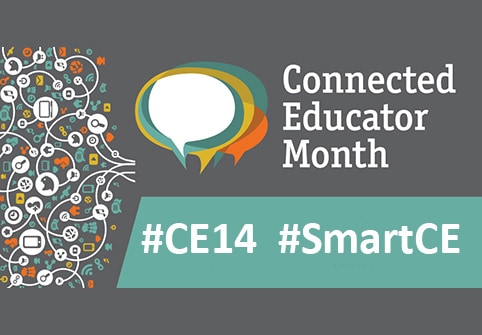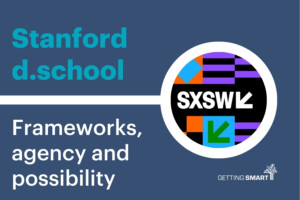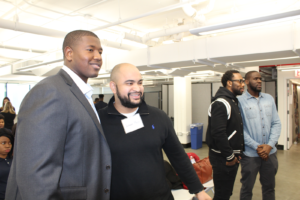So You’re Already a Connected Educator… Now What?

October is Connected Educator Month.
It’s a time that even the federal government recognizes as an opportunity for teachers, principals, and administrators to meet and learn from others around the nation and even the world. Generally speaking, most folks are choosing to connect via some form of social media, notably Twitter. Social media has revolutionized what it means to be an educator and, unfortunately, it often carries a negative connotation such as unprofessional and immature adults who use social media as a means to berate or belittle their students or colleagues. That’s not what it means to be a connected educator. However, once folks sign up for class Twitter pages or create Google+ profiles and begin finding others with whom they can share ideas, the question looms: now what? Maybe more importantly, so what? Here are 5 things to focus on once you’ve taken the plunge and decided to become a Connected Educator:
1. Connection is about Learning. When you get outside of your filter bubble (whether it’s your graduate class, your school building, or social circle), you can take in new information and some of it may not be in alignment with your beliefs. The cognitive dissonance that occurs when you have to reconcile voices you don’t agree with produces powerful learning. In some instances, you’ll change the way you thought about a topic. In other cases, you’ll steel your resolve and have greater clarity about why you believe what you believe. In any case, you’ll affect greater learning for yourself and others. It’s an inherent by-product of connection that we learn.
2. Connection is about Sharing. A lot of folks decide to ‘get connected’ and then simply lurk. That’s ok at first as it helps you test the waters. The truth, however, is that you have absolute genius inside of you that desperately needs to be shared. What is something you learned recently? About yourself or the world around you? What have you always wanted to try with your students but didn’t know where to start? Is there someone else that, if you shared your ideas, would be willing to try with you? Or that has gone before you and can help you navigate the waters? The rise of sharing services like Lyft, Uber, AirBnB, and others point to our need to share. What if being a connected educator meant that you shared your knowledge like you can share your car? But instead of charging money, you only required someone’s time.
3. Connection is about Mentoring. Teachers are leaving the classroom in droves. We’ve all seen the statistics. Half of teachers leave the classroom in their first five years and a staggering number of them report it is due to a lack of support. If you’re a connected educator, particularly if you have any number of people following you (arbitrarily, let’s say if you have more than 100 followers), you MUST seek to mentor others. Be a leader! Help others, particularly those new to the profession, as they navigate what it means to teach in a digital age. If you consider yourself a Connected Educator, you owe it to yourself and the profession to reach out and provide mentorship, encouragement, and leadership. A trail was blazed for you and now it’s time to be a beacon for others.
4. Connection isn’t about Bragging. I hate to use the ‘slippery slope’ argument here, but it can be a pretty quick trip from sharing the great things your students/colleagues/etc are doing to some kind of popularity contest. This isn’t exactly the side of being a Connected Educator that anyone wants to address, but it’s really important to be mindful of your own ego and to keep it in check. Connectedness isn’t about you doing awesome things so you can be recognized (despite how nice recognition is), connectedness should lead to real differences for our learners. Connectedness needs to keep some perspective so that we are sharing ideas and support out of humility and not self-righteous pride.
5. Connection Still Requires Balance. Let’s be very clear here: you can’t possibly keep up with everything that happens on the Internet. You will burn yourself out even trying. Being highly-connected doesn’t mean you have to spend 25 hours/day scrolling through Twitter. Find some ideas you resonate with (usually encapsulated in hashtags like #ce14 or #edchat) and maybe a couple of folks that you connect with personally and keep point #4 (above) in mind. Why you’re connected matters. Be mindful of the amount of time you connect online versus offline. Are you connecting to escape the world around you? Or to augment and share it? Are you connecting for your benefit and gain? Or so that you can leverage your connections on behalf of your students and colleagues?
By all means, jump in head-first to Connected Educator month. There are incredible people with big ideas that are ready to give you the shirt off their back if you need it. You can completely transform learning for your students by sharing ideas or connecting with other classrooms around the world. You can redefine what collaboration looks like and foster deep, meaningful engagement and learning. You may not see it now, but your future self will thank you.





0 Comments
Leave a Comment
Your email address will not be published. All fields are required.